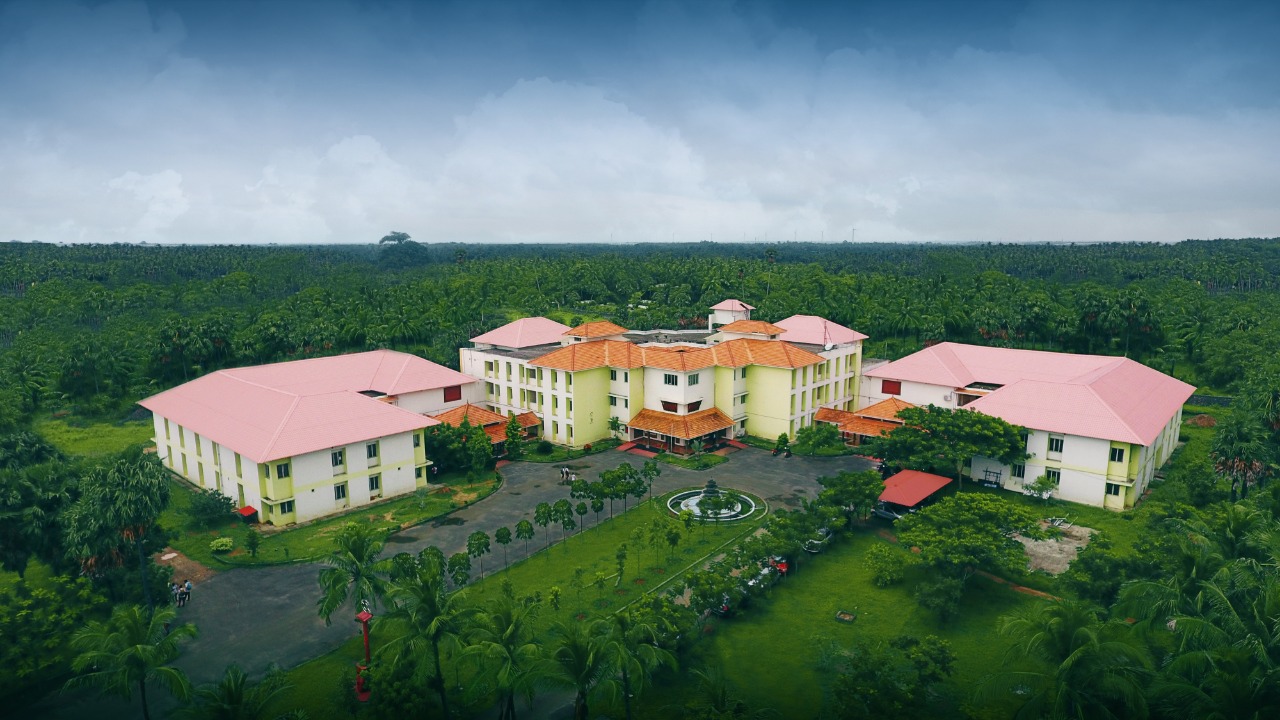
The Department of Civil Engineering was established in 2012 along with the inception of the institution. The department offers B. Tech. Degree in Civil Engineering, approved by AICTE and affiliated to A. P. J. Abdul Kalam Technological University. The Civil Engineering Department provides an outstanding academic environment complimented by excellence in teaching. The well-equipped laboratories in various fields of Civil Engineering such as Survey Lab, Material Testing Lab, Geotechnical Engineering Lab, Transportation Engineering Lab, Design and Analysis Lab and Environmental Engineering Lab offers all facilities for carrying out the practical oriented studies. Industrial visits, internships, lectures and summer training courses are arranged for the benefit of students. The Department had the privilege of producing rank holders in the University examinations. The students of the department actively take part in curricular, co-curricular and extra- curricular activities.
Vision
To produce graduates with capabilities for adapting to new challenges and responsibilities
Mission
To provide quality education to produce competent Civil Engineering professionals
To impart professional attitude through value-based education
To instill managerial skills among budding Civil Engineers through professional orientation
Programme Educational Objectives (PEOs)
PEO 1 – Graduates will have strong foundation to pursue a successful profession in Civil Engineering.
PEO 2 – Graduates will identify and resolve Civil Engineering problems with the help of engineering tools and technology.
PEO 3 – Graduates will exhibit managerial skills and professional ethics to meet social responsibilities.
Programme Outcomes (POs)
PO 1: Engineering knowledge: Apply the knowledge of mathematics, science, engineering fundamentals, and an engineering specialization to the solution of complex engineering problems.
PO 2: Problem analysis: Identify, formulate, review research literature, and analyze complex engineering problems reaching substantiated conclusions using first principles of mathematics, natural sciences, and engineering sciences.
PO 3: Design/development of solutions: Design solutions for complex engineering problems and design system components or processes that meet the specified needs with appropriate consideration for the public health and safety, and the cultural, societal, and environmental considerations.
PO 4: Conduct investigations of complex problems: Use research-based knowledge and research methods including design of experiments, analysis and interpretation of data, and synthesis of the information to provide valid conclusions.
PO 5: Modern tool usage: Create, select, and apply appropriate techniques, resources, and modern engineering and IT tools including prediction and modeling to complex engineering activities with an understanding of the limitations.
PO 6: The engineer and society: Apply reasoning informed by the contextual knowledge to assess societal, health, safety, legal and cultural issues and the consequent responsibilities relevant to the professional engineering practice.
PO 7: Environment and sustainability: Understand the impact of the professional engineering solutions in societal and environmental contexts, and demonstrate the knowledge of, and need for sustainable development.
PO 8: Ethics: Apply ethical principles and commit to professional ethics and responsibilities and norms of the engineering practice.
PO 9: Individual and team work: Function effectively as an individual, and as a member or leader in diverse teams, and in multidisciplinary settings.
PO 10: Communication: Communicate effectively on complex engineering activities with the engineering community and with society at large, such as, being able to comprehend and write effective reports and design documentation, make effective presentations, and give and receive clear instructions.
PO 11: Project management and finance: Demonstrate knowledge and understanding of the engineering and management principles and apply these to one’s own work, as a member and leader in a team, to manage projects and in multidisciplinary environments.
PO 12: Life-long learning: Recognize the need for, and have the preparation and ability to engage in independent and life-long learning in the broadest context of technological change.
Programme Specific Outcomes (PSOs)
PSO 1 – Graduates will design various engineering structures that meet specific needs of the society with appropriate considerations for attaining health, safety and sustainable environment
PSO 2 – Graduates will apply the concepts and manage the projects as a member and a leader in an ethical way

